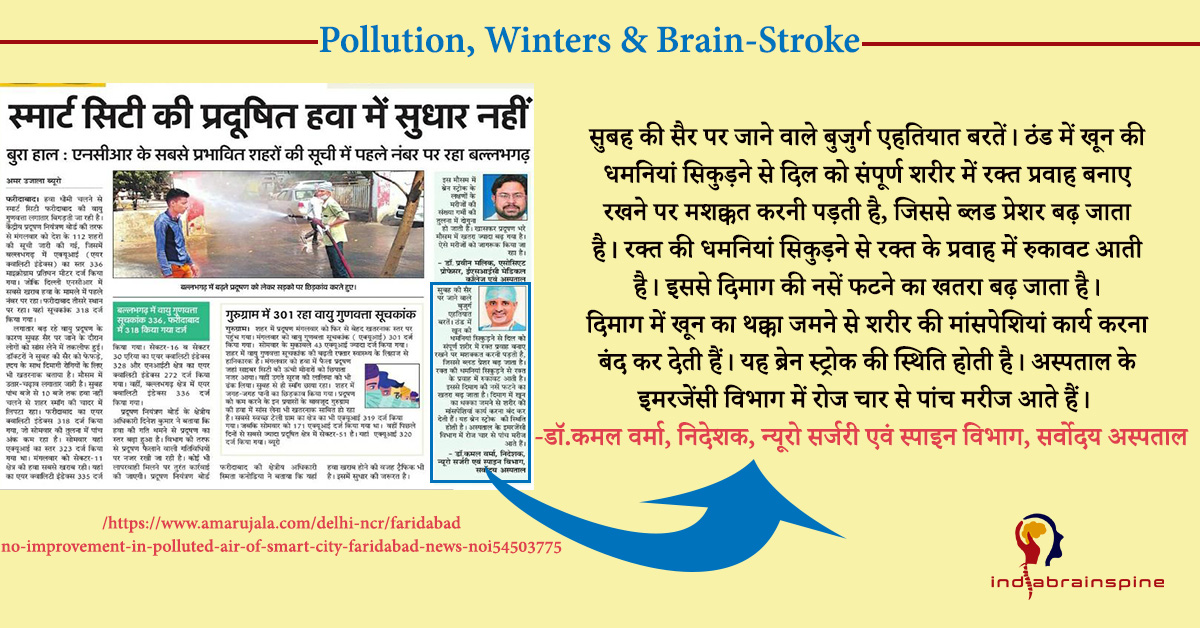Brain Stroke Safety Tips

Brain Stroke Safety Tips
There are two types of strokes.
- Ischemic stroke: where there is narrowing of the blood vessels of the brain leading to decreased blood supply and stroke.
- Rupture of a blood vessels of brain leading to brain hemorrhage and resultant hemorrhagic stroke.
Exposure to air pollution is now a recognized public health issue and a leading cause of mortality more so in emerging economies.
Recent data clearly proves the association of air pollution and cardiovascular diseases and stroke.
Toxic pollutants in air have a tendency to increase the inflammation and resultant narrowing of coronary and brain vessels leading to increased risk of stroke. Air pollution increases the risk of ischemic stroke.

Cold weather in winters further increases this risk.
Due to cold weather the body has a tendency to conserve heat and causes narrowing (stenosis) of blood vessels.
This increases the blood pressure and the risk of hemorrhagic stroke increases. Combined effect of winters and air pollution has a detrimental effect on health and increases the risk of stroke.
Cold weather is also associated with hypercoagulable state due to uncertain mechanisms. This further increases the risk of ischemic stroke.
This risk is much more in older population and patients of underlying diseases like diabetes, atherosclerosis, hypertension and respiratory diseases. Increased frequency of infections, indoor lifestyle and lack of exercise in winters furthers increases the risks.
Here are a few tips to follow to lessen this risk in general population
Brain Stroke Safety Tips:
- Keep yourself warm and properly covered to reduce the exposure to cold and germs
- Use facemask when outdoors
- Deep breathing exercises
- Do not reduce physical activity and exercises
- Avoid going out in extreme cold without proper protection
- Do not ignore symptoms of breathing difficulty
- Keep a regular check of your blood pressures and maintain a strict control of the same
Awareness of these risks and little protection can go a long way to prevent major health events. We wish you good health and wellbeing.
Author Dr. Kamal Verma is a Neurosurgeon. He is the director of neurosurgery and spine surgery department at Sarvodaya Hospital Faridabad Delhi/NCR.

